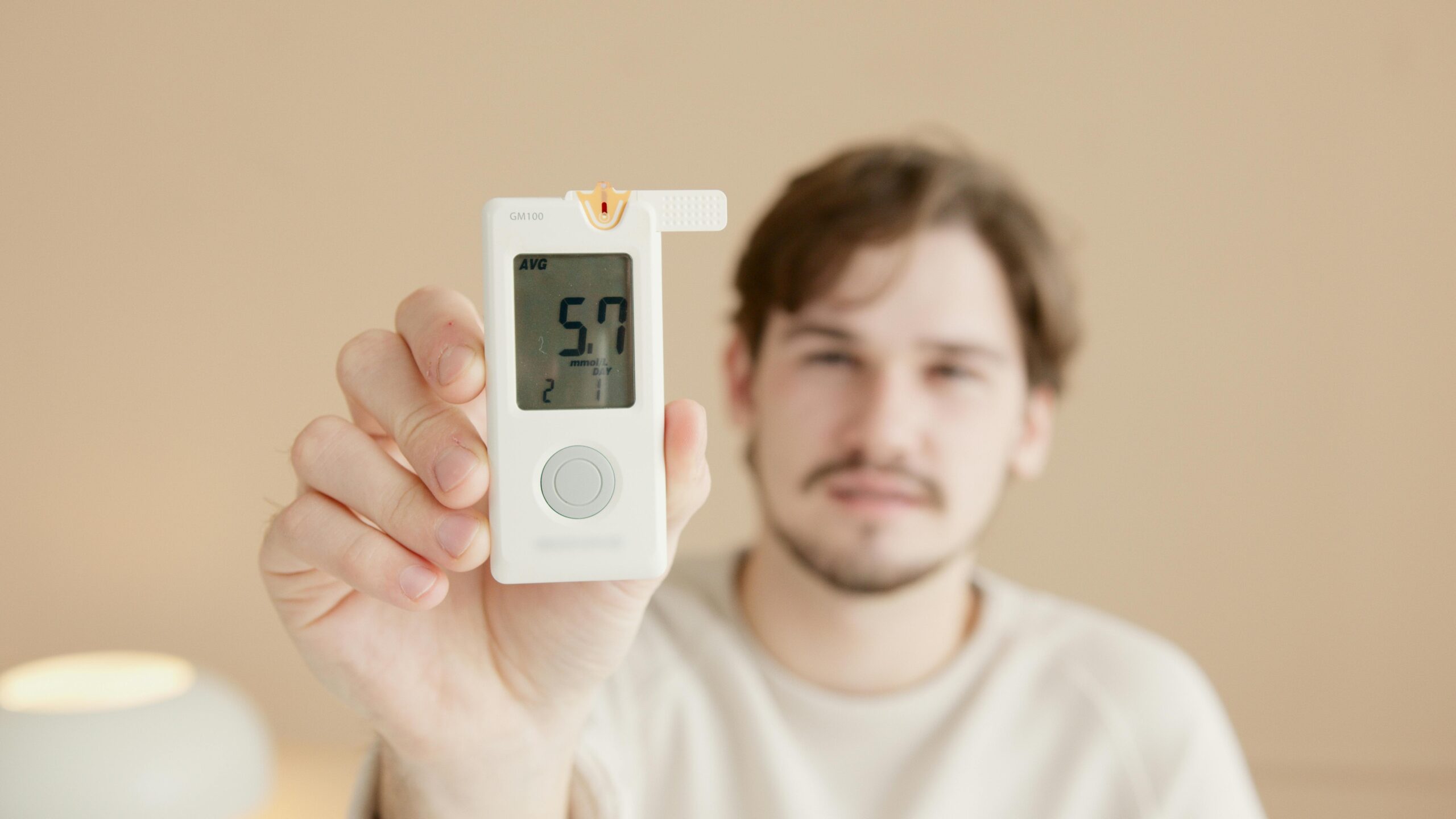
Type 2 diabetes, a chronic condition characterized by high levels of blood sugar, can present various symptoms in males. One of the most common signs is increased thirst and frequent urination. Males with type 2 diabetes may notice that they need to drink more water and subsequently urinate more frequently, as their bodies struggle to regulate blood sugar levels. Additionally, unexplained weight loss or gain can occur due to the body’s inability to properly utilize insulin. Fatigue, blurred vision, and slow-healing wounds are other symptoms that may manifest in males with type 2 diabetes. It is crucial for males experiencing these symptoms to consult a healthcare professional for proper diagnosis and management of this condition.
Below are symptoms of type 2 diabetes in men
Increased thirst and frequent urination
Increased thirst and frequent urination are common symptoms that can indicate various underlying health conditions. One possible cause is diabetes, specifically type 1 or type 2 diabetes. In diabetes, the body either fails to produce enough insulin or cannot effectively use the insulin it produces. As a result, glucose (sugar) builds up in the bloodstream instead of being used for energy, leading to increased thirst as the body tries to flush out the excess sugar through urine. This excessive urination then causes dehydration, triggering a cycle of increased thirst. Other conditions like urinary tract infections, kidney problems, hormonal imbalances, or certain medications can also cause similar symptoms. Therefore, it is important to consult a healthcare professional for proper diagnosis and appropriate treatment.
Unexplained weight loss or gain
Unexplained weight loss or gain refers to a significant change in body weight that occurs without any apparent cause or reason. This phenomenon can be concerning as it may indicate an underlying health issue. Unexplained weight loss is often associated with conditions such as cancer, diabetes, thyroid problems, or gastrointestinal disorders. It may be accompanied by symptoms like fatigue, loss of appetite, and weakness. On the other hand, unexplained weight gain can be a result of hormonal imbalances, medication side effects, or certain medical conditions such as hypothyroidism or Cushing’s syndrome. Both unexplained weight loss and gain require medical attention to identify the root cause and ensure appropriate treatment.
Fatigue and low energy levels
Men with type 2 diabetes may feel constantly tired and lack energy. This can be due to the body’s inability to effectively use glucose for energy, leading to a decreased supply of energy to the cells.
Fatigue and low energy levels are common symptoms experienced by men with type 2 diabetes. The underlying reason for this can be attributed to the body’s inability to efficiently utilize glucose for energy. As a result, there is a decreased supply of energy to the cells, leading to constant tiredness and a general lack of energy. This can greatly impact a person’s daily activities and overall quality of life. Managing blood sugar levels through proper diet, exercise, and medication can help alleviate these symptoms and improve energy levels in individuals with type 2 diabetes.
Blurred vision
High blood sugar levels can affect the blood vessels in the eyes, causing blurred vision or difficulty focusing. This symptom may come and go or persist for an extended period.
One common symptom of high blood sugar levels is blurred vision, which occurs due to the impact on the blood vessels in the eyes. When blood sugar levels are elevated, these vessels can become damaged or swollen, affecting the clarity of vision and making it difficult to focus. Blurred vision may come and go, causing intermittent visual disturbances, or it may persist for an extended period. It is important for individuals experiencing this symptom to seek medical attention promptly, as uncontrolled blood sugar levels can lead to long-term complications and potential damage to the eyes. Managing blood sugar levels through proper diabetes management, including medication, diet, and exercise, can help alleviate this symptom and prevent further eye-related issues.
Slow-healing wounds and frequent infections
Men with type 2 diabetes may notice that cuts, sores, or wounds take longer to heal than usual. Additionally, they may experience more frequent infections, such as urinary tract infections or skin infections.
Slow-healing wounds and frequent infections can be indicative of compromised immune system function. When the body’s immune response is weakened or impaired, it becomes more difficult for wounds to heal properly and for the body to fight off infections. Conditions such as diabetes, malnutrition, certain medications, and autoimmune disorders can all contribute to a weakened immune system. Additionally, advanced age and chronic illness can also play a role in delaying wound healing and increasing susceptibility to infections. It is important for individuals experiencing these symptoms to seek medical attention, as proper diagnosis and treatment are crucial in addressing the underlying cause and preventing further complications.
Numbness or tingling in the hands and feet
High blood sugar levels can damage the nerves, leading to peripheral neuropathy. Men may experience symptoms like tingling, numbness, or a burning sensation in their hands and feet.
High blood sugar levels can have detrimental effects on the nerves, resulting in a condition called peripheral neuropathy. This condition can lead to a range of uncomfortable symptoms, particularly in the hands and feet. Men may notice a tingling sensation, numbness, or even a burning feeling in these extremities. These sensations can disrupt daily activities and cause significant discomfort. It is important for individuals experiencing these symptoms to seek medical attention promptly to manage their blood sugar levels and prevent further damage to the nerves.
Erectile dysfunction
Diabetes can affect male sexual health, leading to difficulties achieving or maintaining an erection. This can be a symptom of underlying type 2 diabetes.
Erectile dysfunction is a common issue faced by many men, and diabetes can play a significant role in its development. When a person has diabetes, particularly type 2 diabetes, it can affect their sexual health and lead to difficulties in achieving or maintaining an erection. Erectile dysfunction can serve as a symptom or warning sign of an underlying diabetic condition. Diabetes affects blood flow and damages nerves, which are essential components for a healthy erection. The condition can also impair the release of nitric oxide, a chemical that helps relax the blood vessels in the penis, making it harder to achieve and sustain an erection. Therefore, it is crucial for individuals experiencing erectile dysfunction to consider the possibility of an underlying type 2 diabetes diagnosis and seek medical attention to manage both conditions effectively.
Increased hunger
Some men with type 2 diabetes may notice an increase in appetite, especially shortly after eating. This can occur due to the body’s inability to properly regulate blood sugar levels.
Men with type 2 diabetes may experience an unsettling increase in appetite, particularly after meals. This heightened hunger can be attributed to the body’s struggle to effectively regulate blood sugar levels. As insulin resistance develops, the cells become less responsive to insulin, resulting in elevated blood glucose levels. In an attempt to compensate for this, the body may trigger hunger signals, urging the individual to consume more food to address the perceived energy deficit. Consequently, heightened appetite becomes a common symptom of type 2 diabetes, requiring individuals to adopt strategies to manage their food intake and maintain stable blood sugar levels.
Mood swings and irritability
Fluctuations in blood sugar levels can impact mood and lead to irritability, anxiety, or even depression. Men with type 2 diabetes may experience these emotional symptoms.
Men with type 2 diabetes often face the challenge of mood swings and irritability as a result of their fluctuating blood sugar levels. These fluctuations can have a significant impact on their overall mood and emotional well-being. The constant rollercoaster of high and low blood sugar levels can lead to feelings of irritability, making it difficult to remain calm and composed in daily situations. Additionally, the uncertainty and unpredictability of their mood can cause anxiety and even depression. Managing blood sugar levels through proper medication, diet, and exercise can help alleviate these emotional symptoms and improve their overall quality of life.
Frequent yeast infections
Type 2 diabetes can create an environment that promotes the growth of yeast, leading to more frequent infections like oral thrush or genital yeast infections in men.
Type 2 diabetes can significantly impact the body’s ability to regulate blood sugar levels, which in turn creates an environment favorable for the growth of yeast. This increased yeast production can result in individuals experiencing more frequent infections such as oral thrush or genital yeast infections, particularly in men. These infections can be uncomfortable, causing symptoms like itching, redness, and discomfort. It is important for individuals with type 2 diabetes to manage their condition effectively to minimize the risk of developing yeast infections and seek prompt medical attention if such infections occur.
It is important to note that these symptoms can also be caused by other factors, so it is crucial to consult a healthcare professional for an accurate diagnosis and appropriate treatment.


